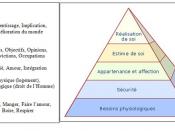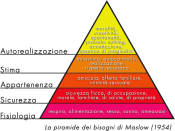"Motivation & Motivation Theories"
�
Table of Contents
1. Introduction 1
2. Psychobiology of Drives 1
3. Self Control 2
4. Maslow's Theory 2
5. Herzberg's Two Factor Theory 3
6. Aldelfer's ERG Theory 4
7. Self-Determination Theory 4
8. McClelland's Achievement Motivation Theory 4
9. Goal-Setting Theory 5
10. Controlling Motivation 5
11. Early Programming 5
12. Organization 6
13. Drugs 8
14. Applications in Education and Instructional Design 8
15. Scientific Management 9
16. Human Relations Model 10
17. Conclusion in terms of Recommendations with Examples 11
References 12
�
1. Introduction
In psychology, motivation refers to the initiation, intensity and persistence of behavior. Motivation is a temporal and dynamic state that should not be confused with personality or emotion. A motivated person can be reaching for a long-term goal such as becoming a professional writer or a more short-term goal like learning how to spell a particular word.
Personality invariably refers to more or less permanent characteristics of an individual's state of being (e.g., shy, extrovert, conscientious). As opposed to motivation, emotion refers to temporal states that do not immediately link to behavior (e.g., anger, grief, happiness).
2. Psychobiology of Drives
At the next level are motivations that have an obvious biological basis but are not required for the immediate survival of the organism. These include the powerful motivations for sex, parenting and aggression: again, the physiological bases of these are similar in humans and other animals, but the social complexities are greater in humans (or perhaps we just understand them better in our own species). In these areas insights from behavioral ecology and sociobiology have offered new analyses of both animal and human behaviour in the last decades of the twentieth century, though the extension of sociobiological analyses to humans remains highly controversial.
Perhaps similar, but...


